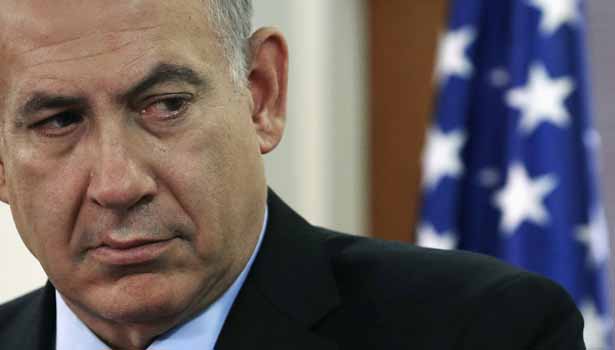As fighting continued in Bethlehem, the Israel and Palestinian communist parties distributed a memo to the media on the morning of Monday, October 22, in which they informed the press that leading Christian clerics would march on Bethlehem the next morning.
The memo made it clear that the purpose of the march was two-fold: to protest the Israel Army’s presence in Bethlehem and to pray for peace. Anyone reading the memo would not know that the Israeli army had entered Bethlehem after the Palestinian Liberation Army had used the high positions in Bethlehem to launch mortar attacks on the southern neighborhoods of Jerusalem.
The march organizers did not hide their desire to engage the Israeli army in a violent confrontation at the checkpoint.
The image of Israeli troops clubbing priests on the nightly news flashed in my mind.
Understanding the dangers inherent to Christian – Israel relations, I faxed the memo announcing the march to Jack Padwa, the honorary chairman of the ADL in Israel and one of the leading lights in the area of Christian-Jewish dialogue. Upon receiving the fax, Padwa immediately sought out and met with Papal Annuncio Monseniur Pietro Sambi, who acts as the Vatican ambassador to Israel, at a reception in Jaffa. Padwa shared the memo about the march with Msgr. Sambi, who assured Padwa that the Christian clergy would not be used for political purposes.
At the checkpoint entrance to Bethlehem on the morning of October 23, I watched more than two dozen Christian clerics showed up, flanked by PLO and Israeli communist demonstrators as expected. The demonstrators waved their signs in Arabic, Hebrew and English: Free Palestine, Stop the Occupation, Israel Out of Bethlehem. A yelling match began, with the marchers demanding to enter Bethlehem, waving their signs.
Msgr. Sambi was there, He called together the Christian clerics and said, in resonant voice, that what they had come to Bethlehem to do was to march in a prayer vigil for peace in Bethlehem They then marched peaceably through Bethlehem, and chanted psalms in Latin and proceeded in a dignified march to Manger Square in the center of the city, where representatives of Christendom prayed for peace in the Holy Land.
While Christians prayed in Manger square, Arab snipers from a nearby hill overlooking Bethlehem renewed fire on the southern neighborhood of Gilo in Jerusalem. An Israeli tank inside Bethlehem returned the fire.
Yet despite the exchange of fire, the Pope’s ambassador can take credit for preventing might have been an unfortunate confrontation between IDF troops and the leading Christian clergy in he middle east.
As the procession of Christian clerics proceeded to Manger Square, I ascended the daily Israeli tour bus to the building erected that now surrounds Rachel’s Tomb. If Christians are saying Psalms, perhaps this was a hint for me to do the same at the one Jewish place of worship in Bethlehem. Rachel’s Tomb is a different place today, with heavy walls and iron doors built to protect it from the fighting outside. As you enter the shrine, something new has been added – a memorial to Joseph, Rachel’s oldest son. The Shawls from Joseph’s tomb in Nablus (taken over by Moslems and converted into a mosque a year ago) have been relocated to Rachel’s Tomb, with a sign hanging overhead that quoted the Talmudic legend that Joseph came to cry at his mother’s tomb.
At Rachel’s Tomb, I saw a familiar face. Yitzhak, the caretaker since the IDF took it in 1967. The now white-bearded Yitzhak, pale and thin, looked like he had been through an illness. A burly IDF colonel entered with me, and asked Yitzhak for a skull cap and asked if he could give him a book to pray from. The soldier said that he had not been in the shrine for more than twenty years, and that he had seen some terrible things in the past few days. As Yitzhak handed the officer a book of psalms and a skull cap.
Yitzhak said quietly that he had also seem terrible days. Yitzhak’s twenty-year old daughter, Tehilla Maoz, had been blown to bits at the Sabarro restaurant in Jerusalem two months ago.
The IDF colonel began to sob, and embraced Yitzhak, who then told the officer that on the night before her death that Tehilla had said to her father that she was worried about her father and pleaded with him to reconsider working in such a dangerous place.
As I chanted a few psalms, I looked up to the sign behind where Yitzhak stands. “Rachel Cries for Her Children Who are No More”.
Christians and Jews recited Prayers and Psalms in Bethelem, while Moslems fired at will.








